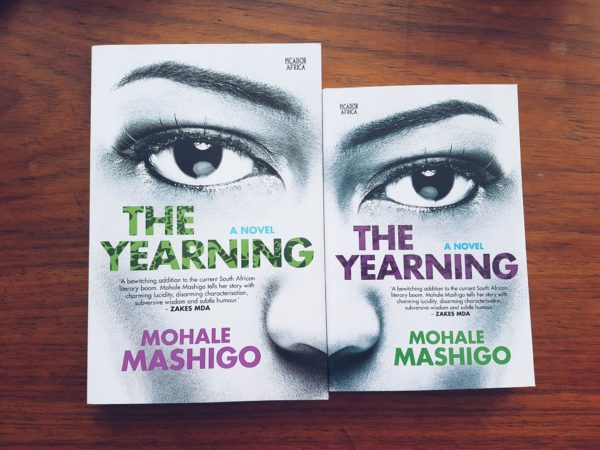
For the Christmas season, we asked 15 writers and editors to tell us what they would be reading. Binyavanga Wainaina, Chigozie Obioma, Hawa Jande Golakai, Gaamangwe Joy Mogami, Megan Ross, Gbenga Adesina, Efemia Chela, Nancy Adimora, Leila Chatti, Koleka Putuma, TJ Benson, Sibongile Fisher, Linda Musita, Yalie Kamara, and Chibuihe Obi. Their lists are towering and impressive, with dashes of humour. There are first reads and re-reads and pre-read analyses. Among them, more than 60 books are named. The rest of us, it seems, have a lot of catching up to do.
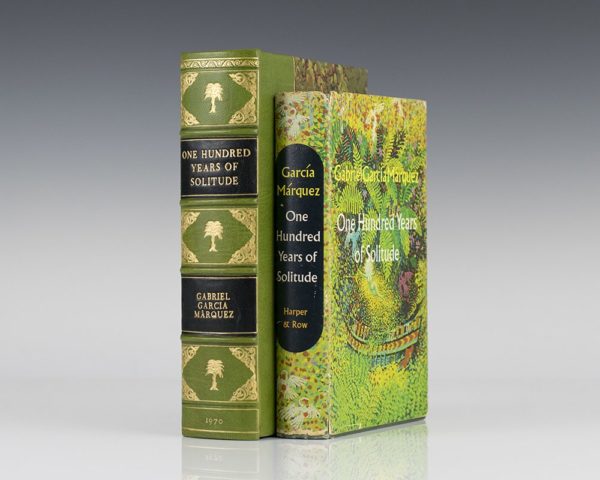
Chigozie Obioma, Author of the Booker Prize-shortlisted The Fishermen:
I have not read too many books this year as I have been quite busy finishing up my second novel, An Orchestra of Minorities, which comes out next year. Ha, after such a long time working on it, since 2013! So, yes, now that I have finished work on the book, I have begun reading a few books I have always wanted to read: The Invisible Man by Ralph Ellison, and re-reading One Hundred Years of Solitude by Garcia Marquez. Actually, I’ve never finished reading it, but I want to. And if I finish them before the year runs out, I want to run into The West and the Rest of Us by Chinweizu, perhaps the smartest man in Nigeria right now.
For the past few months, my wife has been slowly reading Cold Mountain by Charles Frazier and telling me about it every day—night and day. A few days ago, I grabbed the book from her, and said, “Enough, now I must see for myself!” But by the following morning, she had taken the book away from my desk, and embargoed me from touching it till the new year. So, I will have to wait till the new year before reading it. So, for now, Ellison, Marquez, and Chinweizu are all I’ve got!
Sibongile Fisher, Winner of the 2016 Short Story Day Africa Prize and Finalist for the 2017 Brittle Paper Award for Fiction:
I am already halfway through my holiday reading list but I am yet to read the following books: The First Law of Sadness by Nick Mulgrew (Reread), God Help the Child by Toni Morrison, the Writivism anthology Sundown and Other Stories, The Yearning by Mohale Mashigo, Sister Sister by Rachel Zadok, and Every Day Is for a Thief by Teju Cole. Then I’ll be reading select stories on Enkare Review, Granta, The New York Times, Saraba, and Adda.
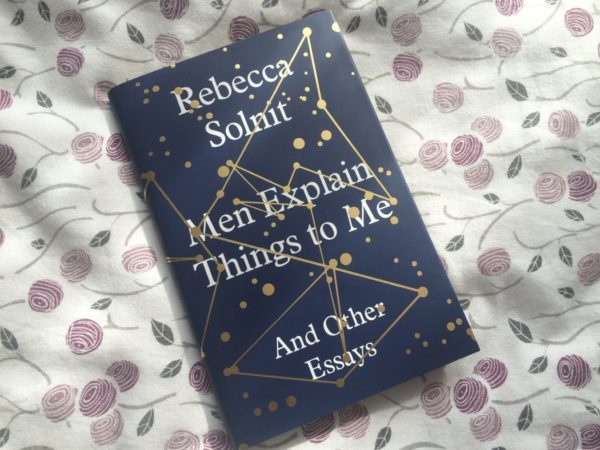
Leila Chatti, Finalist for the 2017 Brunel International African Poetry Prize:
Men Explain Things to Me by Rebecca Solnit. In this year of #MeToo and the much needed conversation about, and as inadequate as they may be, consequences for powerful perpetrators of sexual harassment and violence, this feels a very important read. Of Cities & Women by Etel Adnan. Last year, in Provincetown, I read a great deal of Etel Adnan, and was recently gifted this book. I am interested in exploring Adnan’s thoughts on gender and place, especially at this point in my life, and with all that is taking place across the world.
Plainwater by Anne Carson. A little Anne Carson every few months keeps the brain sharp and strange. Slouching Towards Bethlehem by Joan Didion. I recently watched the Netflix documentary on Didion, and I’ve been meaning to read more prose, so I felt picking up Slouching again would be a good choice. Madness, Rack, and Honey by Mary Ruefle. This book is delicious and I haven’t read it since graduate school—I felt it was time for a revisit. The Unabridged Journals of Sylvia Plath by Sylvia Plath. I have intentions of keeping a more thorough personal journal, and felt I would be further motivated to do so by reading Plath’s. I’ve read bits and pieces of it before, but want to experience reading the collection in its entirety. I’m a bit of a completist with my reading habits—I feel the need to read books whole, and to read every book by every author I adore.
The Last Time I Saw Amelia Earhart by Gabrielle Calvocoressi. I’m rereading in preparation for Gabrielle’s visit to Wisconsin in the new year! Good Grief by Stevie Edwards. My hometown is East Lansing, Michigan, meaning Stevie Edwards and I were near neighbors growing up, though our paths never crossed. I am currently home in Michigan for the holidays, and wanted to return to her poems about this place we both know while I am again, briefly, in it. Poems 1962-2012 by Louise Glück. I always carry Glück’s (nearly) collected poems with me when traveling; it’s become something of a tradition. I like being able to leaf through it, returning to various poems—or books—as I need them. I seem to always need something from her work, so I keep it within reach. Madwoman by Shara McCallum, One With Others by C.D. Wright: books by women whose work I deeply admire!
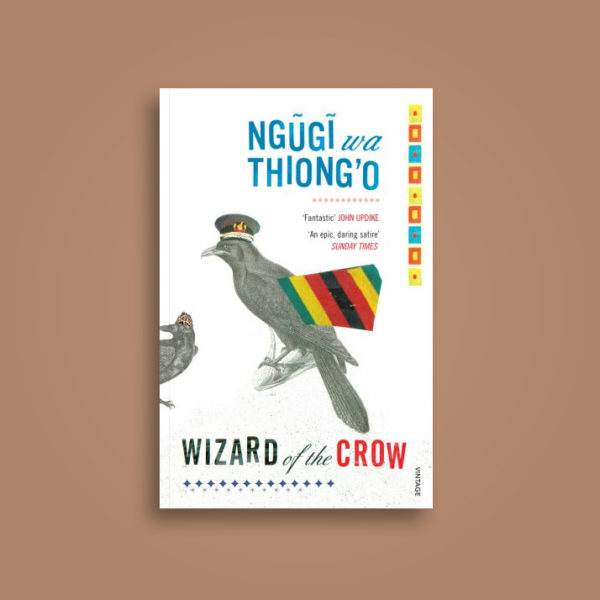
Efemia Chela, Finalist for the 2014 Caine Prize and the 2018 Gerald Kraak Award:
I have more time to read around the festive season so I usually take on a monster of a novel, something topic-dense of 500 pages or more. The kind of book in certain company you lie about having read and then quickly change the subject. I’ve tried to read Ngũgĩ wa Thiong’o’s “masterpiece” Wizard of the Crow before and failed. So I’m trying again this December. The 700 page + is set in the mythical Free Republic of Aburĩria and includes a wizard, a powerful global bank and a corrupt church.
What a great time of year for mysticism and magic! That’s what I’m hoping for when picking up Feather Woman of the Jungle by Amos Tutuola. In this slim volume a chief regales his people with his adventures over a period of 10 nights. Finally I reread an old favourite, for sheer pleasure. Whatever I read inspires me to write better. JG Ballard’s Crash is a sticky mess of broken machines, sex and modern life.
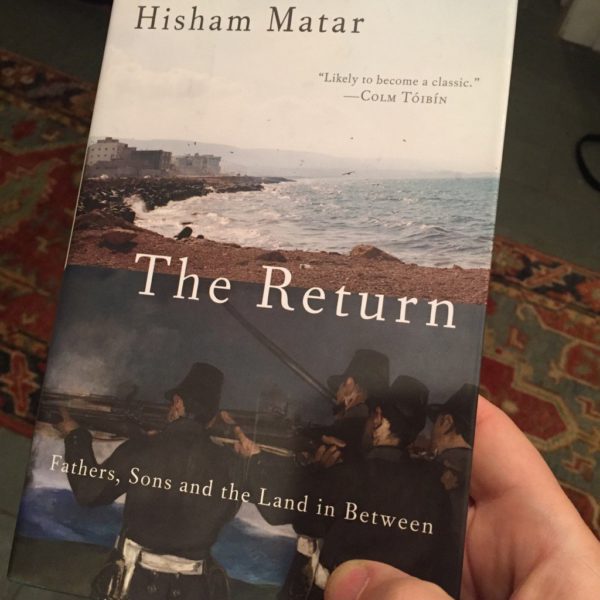
Gbenga Adesina, Winner of the 2016 Brunel International African Poetry Prize:
I’ll be reading John Burnside’s A Lie About My Father ( I’m halfway through) and Li-Young Lee’s The Winged Seed: A Remembrance side by side. Both are memoirs about their fathers. These are two of the most significant poets in my private canon. I’m also interested in how they navigate the slightly different science of the lyrical essay and prose narrative. I’ll also be reading Granta‘s issue 104: Fathers. It has over 20 pieces—essays, a few poems, photographs and meditations on photography, and short stories—around the same obvious theme. I’ll further be rereading The Return (Fathers, Sons and the Land in Between), a memoir by Hisham Matar, for the way the book leaves me feeling every time, the fluency that comes to me in its wake. And I’ve been carrying around my Roland Barthes’ Mourning Diary. The core of my reading however is poetry.
Sometimes I read with the same approach with which I sometimes listen to music, which is to set up a playlist of different versions/covers of the same song in a row. You feel every slight variation from voice texture to voice texture in your body. I like to feel writers do that too. The private pleasures and lessons are beyond measure.
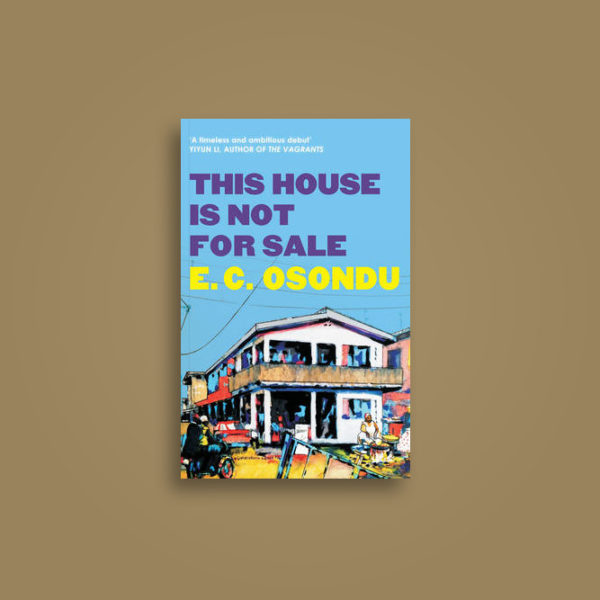
Hawa Jande Golakai, Africa39 Author of The Lazarus Effect and Winner of the 2017 Brittle Paper Award for Creative Nonfiction:
No matter how busy the festive season, I always make time to read. For the first time in my life though, I’m juggling both the feeding of my infant son and my imagination, which is a handful. I usually read a few books concurrently, and right now I’m engrossed in E.C. Osondu’s This House Is Not For Sale, Emma Donoghue’s Room and Alex Marwood’s The Wicked Girls. All these titles have been on my backlog list since this January and they’re a mix of topical African fiction as well as thriller/crime, my staples. On the back burners I have Longthroat Memoirs by Yemisi Arabisala because while I love cooking shows, I find food writing quite boring, that is until I started Yemisi’s book. Finally, Mr Mercedes by Stephen King, because I never need a reason for my favourite popular author. Netflix recently released the series and I’d like to see if they stayed true to King’s dark style.
Gaamangwe Joy Mogami, Filmmaker and Founding Editor of Africa in Dialogue:
This Christmas I am reading The Age of Magic by Ben Okri! Daily Mail describes it as “Part narrative, part philosophy, part allegory…not just a story, but a series of intriguing revelations,” and that is the exact kind of my favorite books. For me, Christmas is a time to reconnect and regroup with my soul, and so philosophy has always been the thing that facilitates with that. Its only fitting that I read the works of my favorite writer to celebrate the festive season. Also the title, The Age of Magic, gives me goosebumps!
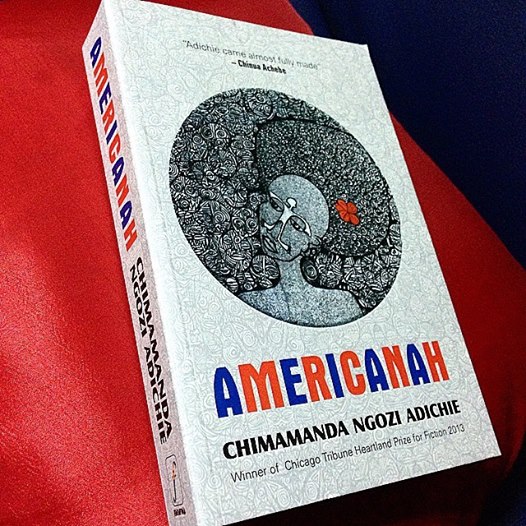
Nancy Adimora, Founding Editor of AFREADA Magazine:
For Christmas, I’ll be rereading Americanah by Chimamanda Ngozi Adichie. I read the novel when it first came out in 2013 and since then it’s held a special place in my heart. The nature of my role at AFREADA means I tend to read a lot of submissions and stories for work/practical purposes. Due to the sheer volume of reading I’m required to do, reading can often feel like an obligation—something I have to do rather than something I want to do at a particular moment in time. For me, it’s important to go back to an old fave and flick through the chapters that made my heart flutter and, in doing so, remind myself of why I fell in love and continue to fall in love with our stories. I can count on Ifemelu and Obinze to remind me of the transformative potential of African storytelling, and I can count on Chimamanda to give me the wave of inspiration I need to keep reading submissions, and forging ahead with the vision behind AFREADA.
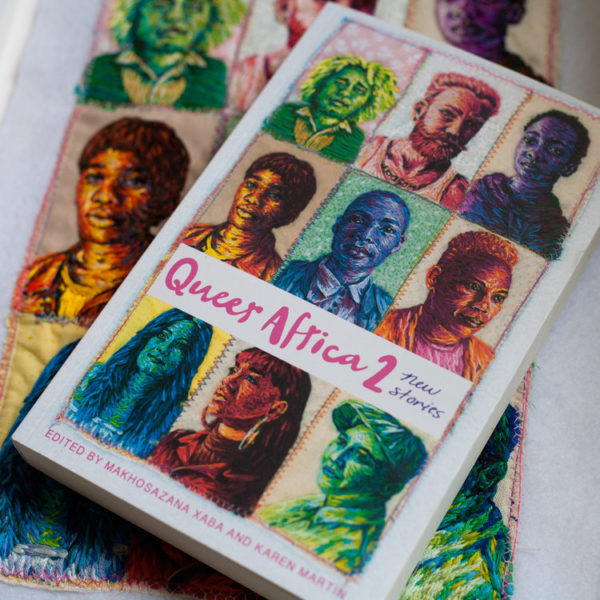
Linda Musita, Africa39 Author and Finalist for the 2017 Brittle Paper Award for Fiction:
Who Will Catch Us as We Fall by Iman Virjee. I have not read a novel set in Nairobi for a long time and I think this one will be worth my time. It has relatively good reviews on Goodreads and someone I know just finished reading it and they really enjoyed the story. Queer Africa 2 anthology. Got it from one of the very talented (and unassuming of said talent) writers in the anthology a while back but it’s still on my to-read pile. I think it’s time to put it on top of the pile, especially after reading your “Dear Mr Brittle” column. Swing Time by Zadie Smith. I have never read Smith. Generally not her biggest fan because my ex likes her work. Yes, I am that petty. But my two friends and I are going to book club it and I do not have a choice about the matter. I am still #TeamForeverPetty despite this.
We Are Going To Need More Wine by Gabrielle Union. Every time I read or hear a review of this book I feel like I will find something in it that I can testify or relate to. In the same way that I saw bits of myself in Trevor Noah’s mum in Born a Crime while reading about his experiences with her when he was a little boy. I have a child, I am responsible for him and, like Noah’s mum, I lost all fear. Fear is a luxury in this phase of my life and it was nice to know that someone else knew that too. Gabrielle Union’s book will be the second memoir I read this year and I have a good feeling about it.
What It Means When a Man Falls from the Sky by Lesley Nneka Arimah. I am re-reading this one because I am obsessed with it. I have never read a collection of stories this good. You think you can write a good short story until you read Arimah’s collection. Anyone who has not bought and read this book should do it. Pure excellence. I am fanning out. I even wrote my name and my heir’s name in it so no one of my friends or relatives dares steal it from my house.
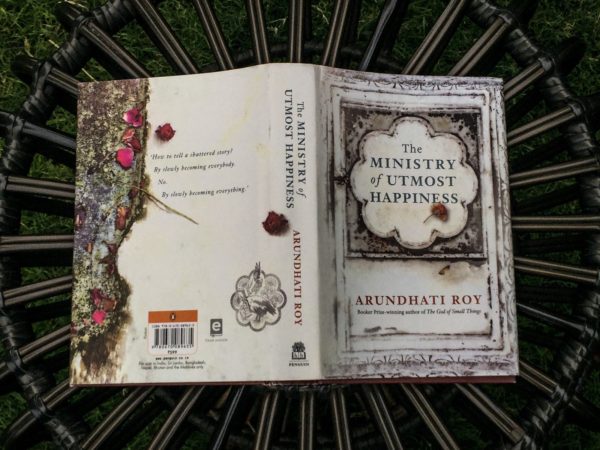
TJ Benson, Finalist for the 2016 Short Story Day Africa Prize and the 2017 Brittle Paper Award for Fiction:
Our Memories Like Dust by Gavin Chait. The cover drew me to it at the Ake Festival bookshop in Abeokuta and when I read the synopsis I was delighted to discover it is SciFi set in Africa. Liking it so far and I can’t wait to write a review. Collective Amnesia by Koleka Putuma. Well, I’ve peeped some pages and watched her perform so I can’t wait to get my copy. The Ministry of Utmost Happiness by Arundhati Roy. Stopped almost half way because of some engagements and Arundhati demands your undivided attention. The Dragon Can’t Dance by Earl Lovelace, for the fourth time because Sir Earl is magic.
Koleka Putuma, Author of Collective Amnesia and Finalist for the 2017 Brittle Paper Award for Poetry:
This Christmas I’ll be reading: Ayobami’s Adebayo’s Stay With Me. A lot of folks have been raving about it. Sisonke Msimang’s Always Another Country. I love Sisonke’s writing in general. I don’t know if I will get through all of these this Christmas, just because I am quite a slow reader, but if I finish these two, I will dive into Nnedi Okorafor’s Who Fears Death and Mona Eltahawy’s Headscarves & Hymens.
Binyavanga Wainaina, Author of One Day I Will Write About This Place and Finalist for the Brittle Paper Awards for Fiction and Creative Nonfiction:
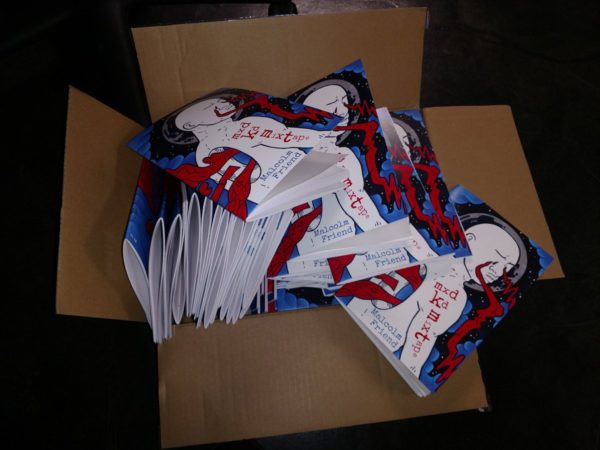
Yalie Kamara, Finalist for the 2017 Brunel International African Poetry Prize:
I am currently reading a handful of really gorgeous, challenging, and inspiring collections of poetry, among them: Ordinary Beast by Nicole Sealey (Ecco, 2017) and mxd kd mix tape by Malcolm Friend (Glass Poetry Press, 2017). Though Sealey and Friend are quite different poets, a common thread in both of their collections is that their writing pushes poems to go further than I’ve seen poems go in a while. No emotion is spared in the interest of creating feel good stories, while what is instead illuminated is their allegiance to honesty. This is manifested through their ability to dig deep into fears, vulnerabilities, and joy, through their adroit use of form, stunning imagery and language, all of which leave me breathless. Among my favorite poems of Sealey’s are “And,” “Virginia is For Lovers,” and “In Defense of Candelabra with Heads,” and of Friend’s: “Ode to Prince, or The Day Prince Dies I’m Reminded I Don’t Call Home Enough,” “On Being Told I Look Like the Rapper J. Cole, or List of Black People I Apparently Look Like, or Do All Black People Look Alike?” and “America.” These poems, in particular, invite me as a reader to live in real time with the poems, to explore, discover, and process alongside them. Sealey and Friend write with such authentic, beautiful and fresh language, that it feels like these poems are still wet from the labor of their pens. Which is to say, these collections will always be alive and that their ink is all over my hands.
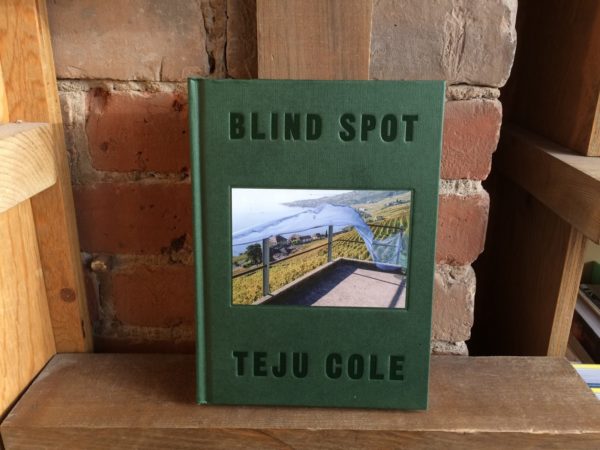
Chibuihe Obi, Winner of the 2017 Brittle Paper Anniversary Award:
I have two books for Christmas. Recently I noticed that my taste bud has considerably tilted towards nonfiction and poetry. While it doesn’t have anything to do with the genre wars or availability, it has everything to do with the authors writing them at this moment—there seems to be a sudden surge in truth-telling in literature. So my Christmas reading list is all nonfiction. Two books: a memoir and an essay collection.
Always Another Country by Sisonke Msimang. The memoir genre of writing has always fascinated me. You can never beat the feeling of being invited and immersed in the lived experiences of another (blame it on my Peeping Tom syndrome). More so when it is set against the backdrop of political instability, a society in flux. The movement and the constant negotiation of unfamiliar spaces in search of home. When to detach and find home elsewhere, what I call ‘unhoming’. This book is so important to me at this point in my life when the idea of home is constantly shifting.
Blind Spot by Teju Cole. Teju Cole is a kind of realm. Thus says Norman Rush. And I agree totally. By this time last year, I was groping around his immense profundity, fumbling with my blind spot. But like anything beyond the quotidian, you need a breakthrough in order to see. The long nights I have spent watching him talk about his writing/seeing process on YouTube has helped to hurl me through the ceiling into the Teju Cole realm. This book seems to have one of the essential nutrients I need to survive the new year—the ability to meditate and magnify minute encounters into miracles.
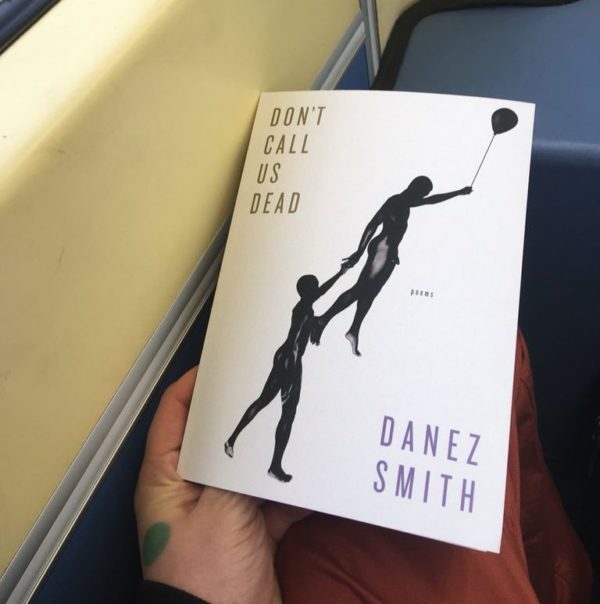
Megan Ross, Winner of the 2017 Brittle Paper Award for Fiction and Finalist for the 2017 Miles Morland Writing Scholarship:
Always Another Country by Sisonke Msimang. I will be reading Sisonke’s memoir for the depth and immensity of the mental and emotional landscapes I have so happily discovered in her articles and essays. In her Brittle Paper Award-winning essay, “All Your Faves Are Problematic: A Brief History of Chimamanda Ngozi Adichie, Stanning and the Trap of #blackgirlmagic,” Sisonke says: “In other words, most books matter because of who you are at the time you are reading them”; and: “The work of imaging new futures and shaping alternate trajectories does not belong to a few glammed up spokespersons.” And for this wisdom alone, I will be ripping open the gift wrap first thing come Christmas morning.
When I first read “Crown” I knew I had stumbled upon my new favourite poet. Danez Smith came into my life as if to answer a prayer I didn’t know I had uttered aloud. I bought my copy of Don’t Call Us Dead at Strand Book Store in New York City, after a beautiful, serendipitous afternoon wandering around the village and eating Japanese food in Washington Square Park with my mentor and close friend, Rachel Zadok. Danez’s poetry lit me up in all the places I thought deadened and dark. Their work, and this collection of poetry, is a bomb and a light and fire. Christmas is Christmas a thousand times over knowing such riches are on my bedside table, ready for re-read after re-read.
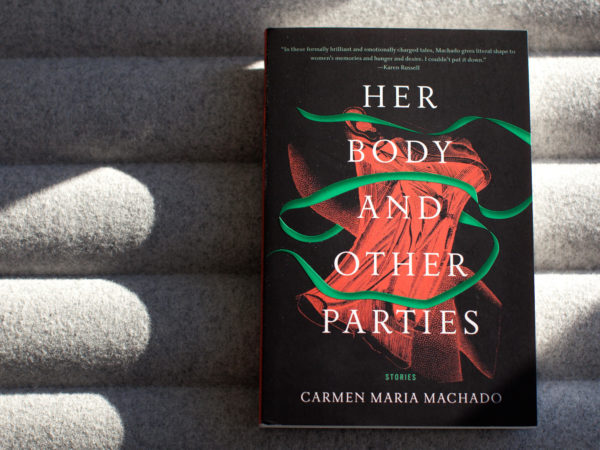
Her Body and Other Parties by Carmen Maria Machado. I first discovered Carmen’s work when I read her short story, “The Husband Stitch,” on Granta. It felt serendipitous, and eerie, because I’d read the story she used as inspiration as a child, the one about the woman with a green ribbon around her neck—read the story if you haven’t yet—and it absolutely haunted me. Why would a librarian shelve that in the children’s section? Anyway, I recently went on holiday to the United States. On my second evening in New York I was fortunate to attend one of her readings and book signings at Word, a book store in Greenpoint, Brooklyn. I’d lost my bank card so couldn’t buy a copy for her to sign, and shamelessly sat there in rapt attention, hanging on every word (but then not joining the signing queue afterwards). I have a copy now, and I’m on “Mothers,” the third story in the collection. I’m spellbound. I love how the author anchors the human body in feminist themes. This book is like a punch in the gut with a velvet-gloved hand.
“I love you right up to the moon and back.” I’m a mom to a two-year-old little boy who loves to be read to. So, of course, I will be reading Guess How Much I Love You by Sam McBratney (illustrated by Anita Jeram) every evening, as I always do, maybe twice over, until he is content and relaxed enough to fall asleep. Practical Magic by Alice Hoffman. A personal guilty favourite, I have read this every Christmas since I was 16 years old. My sister and I are a red head and brunette, and so the idea of two sisters with similar colouring, who also happen to be the youngest in a long, matriarchal line of talented witches, who drink margaritas with their ancient aunts at midnight, cast spells, and raise two children in a great big house occupied only by magical women, really appeals to me.
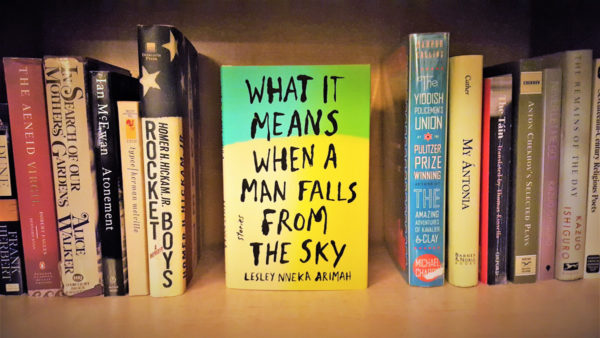
Thungachi by Francine Simon. I discovered Francine’s poetry in 2016 and have not yet got around to reading her entire collection, so I’m going to try savour it. I would read her for “Betel-Nut” alone: I snack on tamarind seeds / sucking while Mom makes brinjal. / Black tongue mangrove mud between my toes. Or for “Creature”: I would eat you / your grey flesh raw / as a split warm clam.
The Yearning by Mohale Mashigo has been at the top of my must-reads for a while. How could it not, with an opener like this:
My mother died seven times before she gave birth to me. I am grateful for that corpse that somehow always seemed to resurrect itself. My father is gone but his smile is alive on my brother’s face. There is no life without death; the two rely on each other and we rely on them both for our purpose. A new mother knows her purpose when she holds her baby within her and in her arms for the first time. A man’s work has its purpose in death, as part of his legacy. Why then do we love the one and despise the other? Why do we sacrifice so much of the present to hide the past? Why do we take away the future’s knowledge of itself in order to make the past seem perfect?
What it Means When a Man Falls From the Sky by Lesley Nneka Arimah—I’ve been dying to read this since its publication date was announced. I devoured Lesley’s Commonwealth Short Story-winning “Light”—How is this for an opener: When Enebeli Okwara sent his girl out in the world, he did not know what the world did to daughters. He did not know how quickly it would wick the dew off her, how she would be returned to him hollowed out, relieved of her better parts?—and cannot wait to see how she has moulded her short story collection. My copy is on its way to me as we speak (be on time, please, Amazon).









COMMENTS -
Reader Interactions